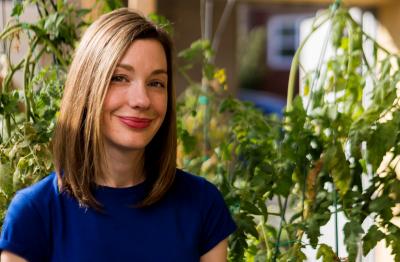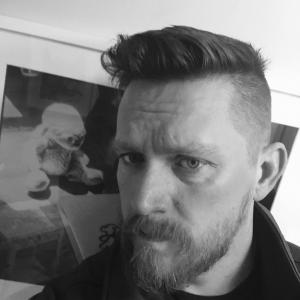Author spotlight: Marjorie Simmins
Marjorie Simmins is the author of two books of non-fiction, Coastal Lives (Pottersfield Press, 2014) and Year of the Horse (Pottersfield Press, 2016). A freelance journalist, she has published across Canada with major daily newspapers, as well as numerous magazines, such as Halifax Magazine, Progress, United Church Observer, Atlantic Books Today, and Saltscapes. In the following post, she talks about the writing life, teaching, and what participants can expect from her upcoming workshop, Writing the Stories of Our Lives.
How long have you been writing? What drew you to writing in general, and creative non-fiction in particular?
It’s hard to remember when I didn’t write. I wrote letters from six or seven on (thousands over a lifetime, mostly to family, still on-going), and started journals at age 12 (at least 25 hard-bound journals in as many years). I published my first professional article in 1990 and have been a working journalist and teacher ever since. It was a natural transition from letter and journal writing, to personal essays. It took no time at all to understand that the pronoun “I” had greatest interest and biggest heart if connected to “we,” or the universal experience. I loved the idea of talking to the world and sharing experiences and thoughts. As for what I call my “straight journalism” (hard news), it seemed easiest to start my career writing about what I knew and loved. So I jumped in with commercial and sport fishing; commercial and sailing boats; horses; city and country life; etc. Confidence gained, I went on to become a generalist journalist. But I am always happiest writing essays or profiles, because they help me to puzzle out the world, and my emotional and intellectual terrain.
In addition to being a writer, you also teach writing. Do you see a connection between the practice of writing and the practice of teaching?
Teaching is an eye-opening experience. I learn so much every time I have the privilege of talking with people about writing and communications. I find that a teacher needs to be emotionally nimble and observant when leading a group of people in discussions about writing generally, and personal stories particularly. I most often teach memoir writing. When you talk about the stories of people’s lives, you have to be respectful and kind, and hope—insist—others are as well. You also need to keep everyone on track. I am interactive and always seek to give people enough to have an epiphany or two about their project, but I still want to get through my own teaching agenda. So a balancing act, really. The connections I see between the practices of writing and teaching are: practice makes you better; writing feeds teaching because you are constantly learning more about your craft; and teaching writers is a two-way learning process.
What do you love about living in Nova Scotia?
I love Nova Scotia dearly. I love its crazy weather and generous, heart-full people. I love having settler history all around me, and learning more about Atlantic Canada’s First Nations. I love my horse and writer communities here. I enjoy every region in this province: industrial Cape Breton; the Cape Breton Highlands; enchanting Mabou, Port Hood, Inverness, and every coastal community along Route 19; the Annapolis Valley; the South Shore; the North Shore, with its wonderful farms and strong writing community; the Truro/Old Barns area, with its gorgeous historic barns, silos, the Agricultural College, and horse farms, modest and lavish; and hugely, the entire coastal area of Southwest Nova, which includes Yarmouth and the French-speaking district of Clare, and cosy, cosmopolitan, charming Halifax, which I wear like my favourite jean jacket, whenever we spend time there. I love the art of the region, and the music of the region. I am in awe of my Acadian friends and their ability to sing-song their ancestors for eight to 10 generations back, and their many life and homemaking skills. I love the food here in NS, and the wines, and the rums. Think I’ve covered it all now!
What’s the biggest misconception about being a writer?
That a writer can wait until the Muse comes along with an idea. Real (professional/committed) writers write every day, and often, all day (or night, whatever works for you). Another misconception might be the glory and excitement of it all. 🙂 Very little glory and money, and not a lot of excitement, either. Of course there are wonderful moments, and some years, even, that are much more satisfying and productive than others. You gotta love your own company. And you gotta love—or be taken with—your own visions of this world, or others. You have to enjoy seeing word after word stretch across the page. Similarly, you have to be ruthless when it comes to editing. Overall, divas need not apply. Writing will humble you nearly every day of your life.
What advice do you have for aspiring writers?
Write. Read. Watch movies. Think about what genre really grabs you—and why. Write and read more. Try new stuff. Try a new genre. Fail. Fail again. Try again.
What’s the best part about writing in your part of Nova Scotia?
Working at home with my husband, Silver Donald Cameron, who is one of the finest stylists this country or any other one has ever produced. The steps on the staircase between our offices are worn with footsteps back and forth.
What’s your guilty pleasure?
I like sweets too much. A batch of homemade brownies is good, or that Nova Scotia speciality, “Hoof-prints” ice cream. I also read “trash” magazines, as I am fascinated by other people’s lives, along with fashion and lifestyles.
What do you do when you have writer’s block?
Very rarely happens. If it does, then I try to re-focus on the aspect of the story/book/article that had me excited to write about a certain subject or person in the first place.
What are you working on right now?
After two non-fiction books, I just finished my first novel. It took a year of my life and was one of the hardest bits of writing I have ever done. I learned a ton. It will be fun to teach a writing course after this experience.
What can participants in your upcoming memoir workshop expect?
To have some fun, I hope! Memoir is a serious business in some ways, but there’s also lots of opportunity for fun and laughter with the genre, as so many gifted writers show us. Even the most tragic subject needs moments of lightness to keep the reader from straying. What I really love to see with these workshops is for a person to arrive with an idea, tweak and re-assess it with any new knowledge or tips or support they receive, and leave ready to write, or re-write, or even make an entirely new start, that suits heart and mind better. Collectively, the groups always turn out to be stellar, so individuals learn from each other, and sometimes even stay in touch or form writing groups of their own. Come prepared for magic, I’d say. If you can find your subject, your structure, and your motivation to write a life story—you’re off and writing.
Author spotlight: Marjorie Simmins Read More »










